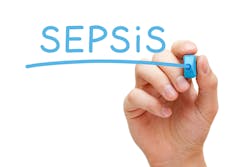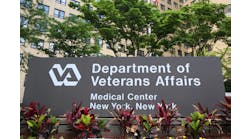A new multi-stakeholder initiative is seeking to create a National Sepsis Data Trust, a hub of sepsis-relevant clinical and claims information available to all at the national level. The goal of the National Sepsis Data Trust Initiative (NSDTI) is to help researchers, patients, innovators, and caregivers to better understand sepsis, and therefore to improve its diagnosis and treatment.
Sepsis Alliance, a nonprofit organization dedicated to raising awareness of sepsis, notes that 1.7 million Americans are diagnosed with sepsis every year, and more than 270,000 of those Americans die – more than from prostate cancer, breast cancer, and opioid overdoses combined. Sepsis is the leading cause of death in U.S. hospitals and is responsible for approximately $62 billion in hospitalization and skilled nursing costs annually. Healthcare providers face enormous challenges in diagnosing and treating sepsis.
NSDTI’s goal is a readily available nationwide trust comprised of anonymized, patient-specific, longitudinal, all-site-of-care data. The organization says such a data trust has the potential to:
- Improve time to sepsis diagnosis;
- Illuminate which treatments lead to the best health outcomes;
- Inform who is most at risk of sepsis and why;
- Identify inequitable disparities in care and outcomes;
- Help us better understand novel infections like COVID-19 and how they contribute to the onset of sepsis; and
- Allow innovators to deliver tools for better sepsis outcomes.
A trust can also promote antimicrobial stewardship by equipping innovators with the data essential to developing better drugs and providing physicians with most comprehensive guidance on what works best for a given sepsis patient. This kind of information is essential for enabling better diagnosis, outcomes, equity, innovation, and quality of care for patients with sepsis, saving lives and limbs.
Sepsis Alliance has been prioritizing the pursuit of improved sepsis data collection and availability for several years. In 2020, the organization created the National Sepsis Registry Initiative (NSRI), which sought to create a national registry of sepsis data modeled on the National Program of Cancer Registries. However, after careful consideration, Sepsis Alliance determined a data trust model, rather than a registry model, to be the optimal path forward for its purposes. Although the format and governance will look slightly different, the end goal remains the same: making anonymized, patient-specific, longitudinal, all-site-of-care sepsis data available at the national level.
NSDTI will pursue pilot programs, promote legislation, and engage stakeholders in the creation, implementation, and use of a sepsis data trust.


